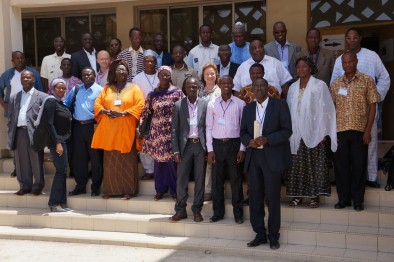"There are several programs that already provide IWRM courses," said Dr. Danka Thalmeinerova, GWP Senior Knowledge Management Officer. "Even more promising is the fact that lecturers are invited by governments to support the implementation of IWRM. This ranges from support in policy formulation, development of IWRM plans, and implementation of new water and social development legislation West Africa has been able to integrate water resources development and management into national policies, not only as a political agenda to attract donors, but also in preparing new generation of water professionals", she said.
Asserting that IWRM today is prominently in the training curricula to various degrees in the West Africa region, Dr. Awa Niang from Cheikh Anta Diop University also stressed that it is still far from a true harmonisation. There is therefore a need for setting up mechanisms that will lead to the mainstreaming of IWRM into training.
In addition, focussing on the establishment of a regional West African knowledge Centre, Prof. Salif Diop, a former Senior UNEP Programme Officer, emphasised that the Toolbox plays a crucial role providing knowledge for water managers, students and lecturers to solve ecological and social problems. Following discussions regarding the establishment of a regional IWRM Knowledge Centre, it was agreed that a Centre should focus on:
- Promoting the Toolbox in Universities
- IWRM training
- Applied research
- Collaboration with existing IWRM initiatives and organisations.
A committee was setup to develop and draft a proposal with ToRs for the establishment of the Centre. GWP will facilitate the work of the committee by monitoring its activities and supporting one meeting of the members of the Committee to finalise the proposal.

